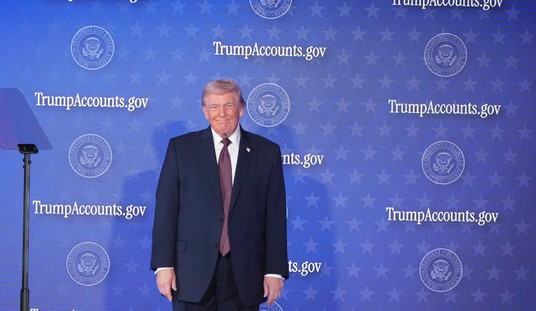President Barack Obama, former Secretary of State Hillary Clinton and big business make unlikely bedfellows — but there they are, all snuggled up. Together, they have lined up in opposition to allowing the Export-Import (Ex-Im) Bank to expire at the end of this month, as it’s currently set to do.
The trio have turned to alarmist “economic catastrophe” messaging to garner support for this behemoth of corporate welfare, while free market conservatives and small government advocates have been urging for the bank’s wind down.
The Ex-Im Bank was established by Executive Order by President Franklin Roosevelt in 1934. Proponents claimed that it was needed then to make loans to the Soviet Union, and later, when it was reauthorized in 1934, to assist in facilitating trade with Cuba. Today, however, the bank has far outlived its intended purpose, serving as a repository of corporate cronyism handed out to politically-connected businesses.
Ex-Im was intended to help small businesses compete abroad in unstable foreign markets and guarantee loans to foreign companies to purchase American goods. In reality, however, the bank subsidizes foreign transactions for some of the largest corporations in the country. For example, the three biggest recipients of Ex-Im financing assistance - Boeing, General Electric, and Caterpillar –receive 40 percent of the bank’s total outlays.
One vastly overstated claim is that American small businesses couldn’t finance their export agreements overseas. In fact, according to the Heritage Foundation, Ex-Im finances less than two percent of total United States exports and less than one percent of small businesses receive the bank’s assistance. The giant U.S. aircraft manufacturer Boeing, alone, received 70 percent of all Ex-Im funds last year. Not exactly a “small” business.
Recommended
The bank hurts, not helps, American competitiveness abroad. It subsidizes foreign governments—even unfriendly ones—by providing state-owned businesses financing at artificially low rates. For example, Ex-Im provides loans to Emirates Airline, which is state-owned by the United Arab Emirates; provides loans to Pemex, a Mexican state-owned oil company; and provides direct subsidies to the Export Import Bank of China, in the form of an $18.4 million guarantee.
According to the American Enterprise Institute (AEI), Ex-Im also recently extended a $68.5 million guarantee to China’s Semiconductor Manufacturing International Corporation (SMIC) to build a manufacturing facility. AEI points out that a handful of U.S. companies still manufacture semiconductors here in the U.S., questioning the logic of the U.S. taxpayer-backed bank choosing to subsidize a Chinese competitor.
Today, with thousands of private lenders around the country, ready and able to finance American exports, without using taxpayer-backed funds, it’s become clear that the bank has outlived its usefulness. Private sector lenders, in fact, consider the Ex-Im bank a competitor, noting that should the bank expire, the private sector can easily step in.
That hasn’t stopped the big businesses that benefit and politicians who collect checks from them from issuing vague threats that closing the bank will cause jobs to vanish into thin air and obliterate America’s ability to export abroad.
General Electric (GE), for example is parading workers around at rallies and publishing reports that jobs will disappear if the bank expires on June 30. Recently, GE coerced workers in two North Carolina plants to participate in a rally in order to demonstrate “overwhelming” support for Ex-Im. According to a GE press release obtained by Wilmington Biz, the direct purpose of the rally was to sway local Congressmen David Rouzer (R-N.C.) and Walter Jones (R-N.C.) to vote for reauthorization.
Not surprisingly, Hillary Clinton herself is one of the bank’s biggest cheerleaders, noting as Secretary of State that she wanted to put the Ex-Im bank “on steroids.” Yet, on the campaign trail, she purports to be a champion for “Everyday Americans.”
The Clintons are no strangers to cronyism and corporate welfare for special interests, of course. Both GE and Boeing are major Clinton Foundation donors, and, the chairman of the bank, Fred Hochberg, bundled massive campaign contributions for Clinton’s 2008 presidential campaign.
“A Bank for Friends” is what they should call it, as Ex-Im is crony capitalism at its best. On June 30, Congress should let the bank expire and focus taxpayer dollars and government attention to issues here at home.

























Join the conversation as a VIP Member